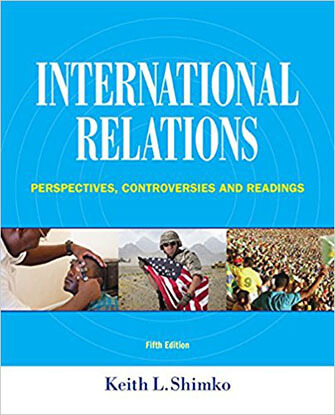

This book is important to understanding international relations for two reasons. The first is that at the end of the day the theory itself is self-proving and tautological, and the second is that it is the dominant policy of most of our world's governments today. Neorealism breaks down into two subsets, offensive and defensive realism, and seeks to curtail the humanist thinking of the old standard realism and apply structural constraints. What better way to start of this list than with the reinterpretation of the founding theory of international relations, realism? In this book the editor compiles the works of many prominent contemporary academics in order to outline the theories and also provide criticism of them as well. So this article goes out to the scholars, the professionals, and the armchair politicos in desperate need of more meat on the bones of an argument. The key to all of these books is they seek to predict behavior, and to predict behavior is the magic bullet of peace theory.

They outline the fundamentals, the deep theory, and the canon of international relations, and to understand them and digest will give anyone a bit of authority.

These books obviously lean towards the understanding of conflict between interstate actors but they form the foundation of international relations as a whole. The purpose of this short list piece is to chronicle the seven best pieces of literature, whether they be articles or books, on the subject of international relations.


 0 kommentar(er)
0 kommentar(er)
